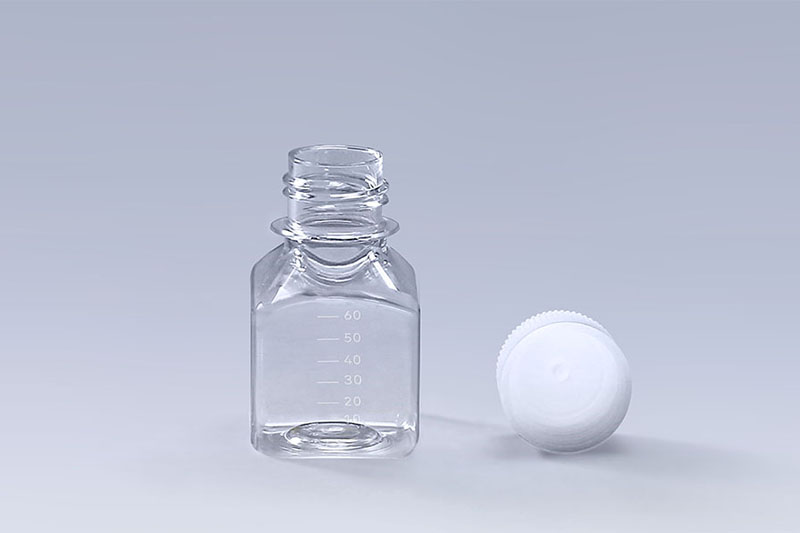Culture media bottles are mainly used to hold various culture medium, serum, buffer and other solutions required for cell culture. In view of the strict requirements of cell culture tests on consumable products, this kind of packaging needs to go through various tests to ensure that it is qualified before it can be put into use. Among many testing items, the hemolysis test is a very important one.
Cell hemolysis refers to the phenomenon that the cell membrane bursts outward due to osmotic pressure, quick freezing, mechanical force, biological or chemical toxins, etc., resulting in the outflow of cytoplasmic substances. The hemolysis test in culture media bottles is used to test whether samples contain leachable compounds that would cause hemolysis of red blood cells in vitro.
 60ml-Square-PETG-PET-Media-Bottles
60ml-Square-PETG-PET-Media-Bottles
Refer to ISO10993-4:2017: Biological Evaluation of Medical Devices Part 4: Selection of Tests for Interaction with Blood; GB/T 16886.4-2003 Biological Evaluation of Medical Devices - Part 4: Selection of Tests for Interaction with Blood. The negative control and positive control of the test product are in contact with fresh rabbit anticoagulant blood, and the absorbance is measured at a wavelength of 545mm using a UV-visible spectrophotometer, and the hemolysis rate of the test product is calculated, which shall not exceed 5%.
The culture media bottle is a common container in cell culture experiments, and the hemolysis test can avoid affecting the later cell culture experiments because the storage container affects the composition of the culture medium.
The FAI climbed 5.9 percent year-on-year in the first 11 months of 2018, quickening from the 5.7-percent growth in Jan-Oct, the National Bureau of Statistics (NBS) said Friday in an online statement.
The key indicator of investment, dubbed a major growth driver, hit the bottom in August and has since started to rebound steadily.
In the face of emerging economic challenges home and abroad, China has stepped up efforts to stabilize investment, in particular rolling out measures to motivate private investors and channel funds into infrastructure.
Friday's data showed private investment, accounting for more than 60 percent of the total FAI, expanded by a brisk 8.7 percent.
NBS spokesperson Mao Shengyong said funds into weak economic links registered rapid increases as investment in environmental protection and agriculture jumped 42 percent and 12.5 percent respectively, much faster than the average.
In breakdown, investment in high-tech and equipment manufacturing remained vigorous with 16.1-percent and 11.6-percent increases respectively in the first 11 months. Infrastructure investment gained 3.7 percent, staying flat. Investment in property development rose 9.7 percent, also unchanged.
 English
English


















































